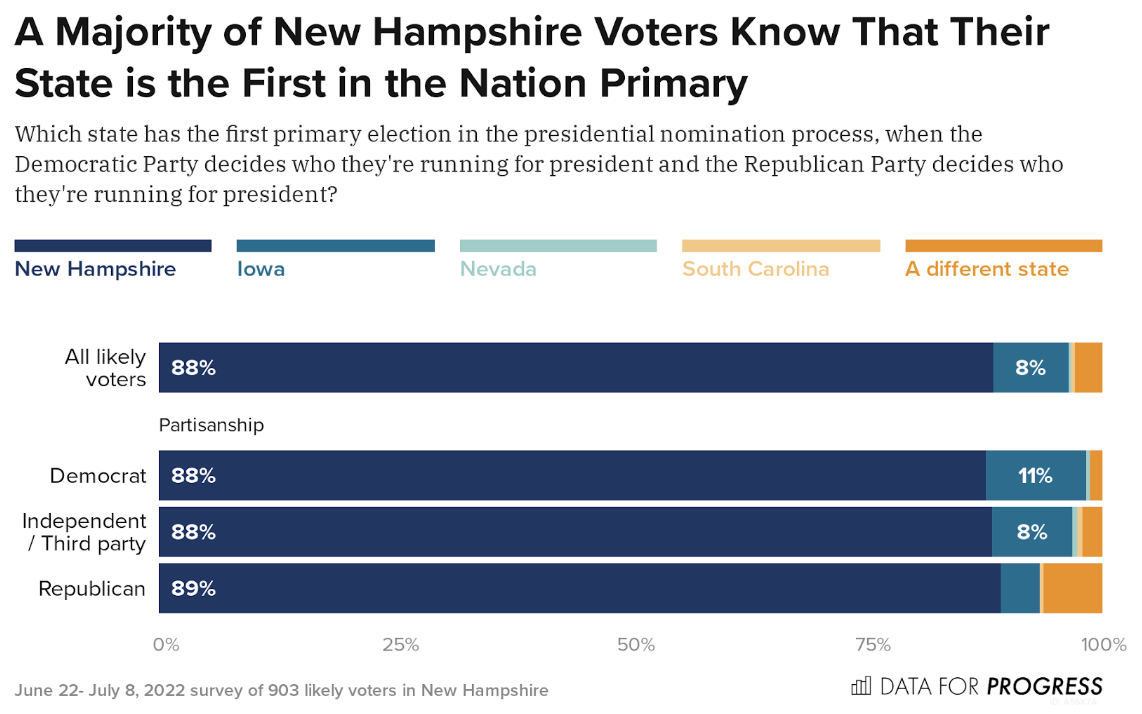New Hampshire Voters Would Not Blame Elected Leaders for Losing First Primary Status
By Kirby Phares and Brendan Hartnett
From June 22 to July 8, 2022, Data for Progress conducted a survey of 903 likely voters in New Hampshire to examine the November general election for U.S. Senate and understand voters’ attitudes towards New Hampshire’s position as the first presidential primary in the nation.
We first asked likely voters who they would vote for in the 2022 U.S. Senate election if it were between Democratic incumbent Senator Maggie Hassan and three potential Republican candidates — Donald Bolduc, Chuck Morse, and Kevin Smith. We find that Senator Hassan is ahead of all three Republican candidates in a potential general election for U.S Senate. Among likely New Hampshire voters, Senator Hassan receives 49 percent of the vote and leads Morse by +3-points and both Bolduc and Smith by +4-points.
To understand how New Hampshire voters view the state’s position, we tested how familiar voters are with their first in the nation primary status. Eighty-eight percent of likely voters identified New Hampshire as the state which holds its presidential primary election before any other state. Eight percent of respondents incorrectly identify Iowa as the first state to hold its primary — most likely confusing the Iowa caucuses which are the first presidential nominating contests in the county. New Hampshire has held its first in the nation status since 1920 and has been affirmed in state law subsequently. Given the historical significance of its early primaries, it is unsurprising that an overwhelming majority of New Hampshire voters are familiar with its first in the nation status.
We next asked likely voters about their attitudes towards New Hampshire potentially losing its status as first in the nation primary. We find that a plurality of voters in New Hampshire (42 percent) would not blame anyone if the state lost its spot as the first presidential primary. Twenty-one percent of voters would blame the Democratic and Republican National Committees. New Hampshire voters are least likely to hold elected officials responsible if the state were to no longer be the first primary in the nation. Only 3 percent of voters in New Hampshire would blame Senator Hassan, which is largely driven by Republican voters.
While New Hampshire’s status as the first primary in the nation has recently become in jeopardy, likely voters do not associate the issue with elected officials. These results show that Senator Hassan is well positioned against potential Republican candidates, and the Senator’s re-election campaign is unlikely to be impacted if New Hampshire were no longer the first presidential primary.
Kirby Phares (@kirbyphares) is a polling analyst at Data for Progress.
Brendan Hartnett (@BrendanHartnett) is an intern at Data for Progress.



